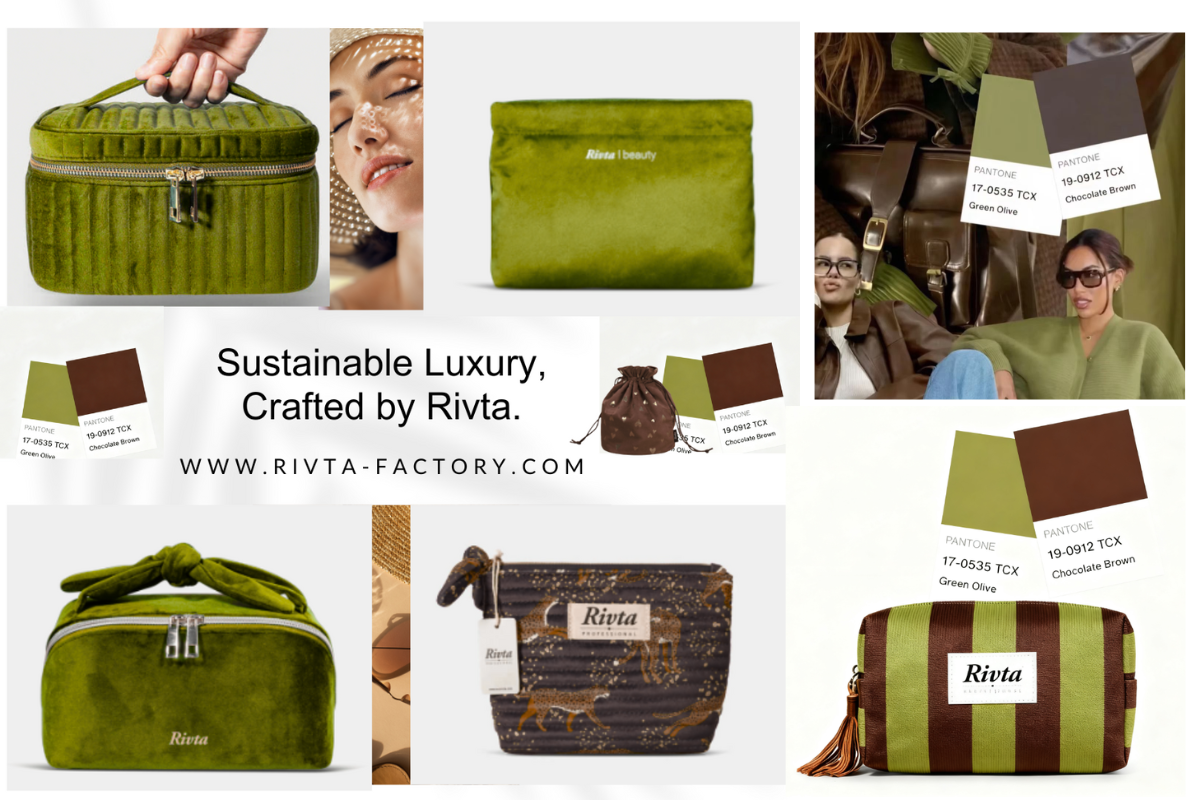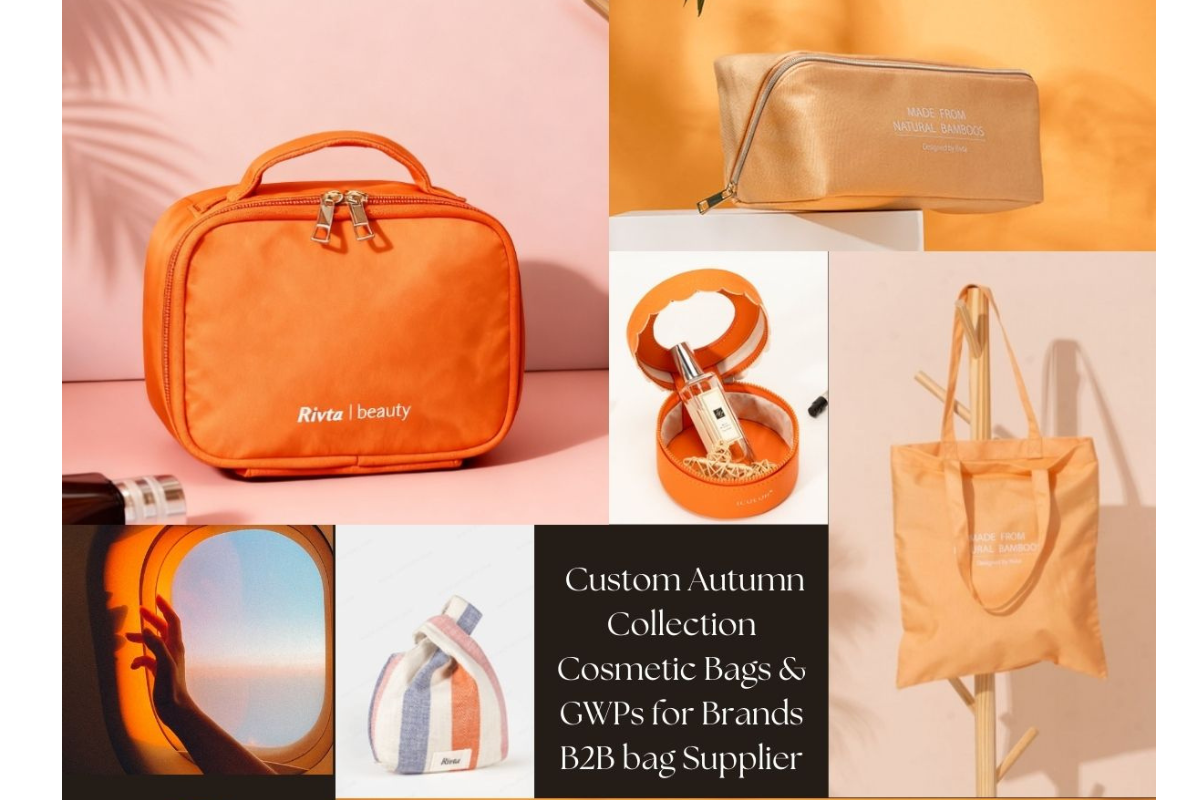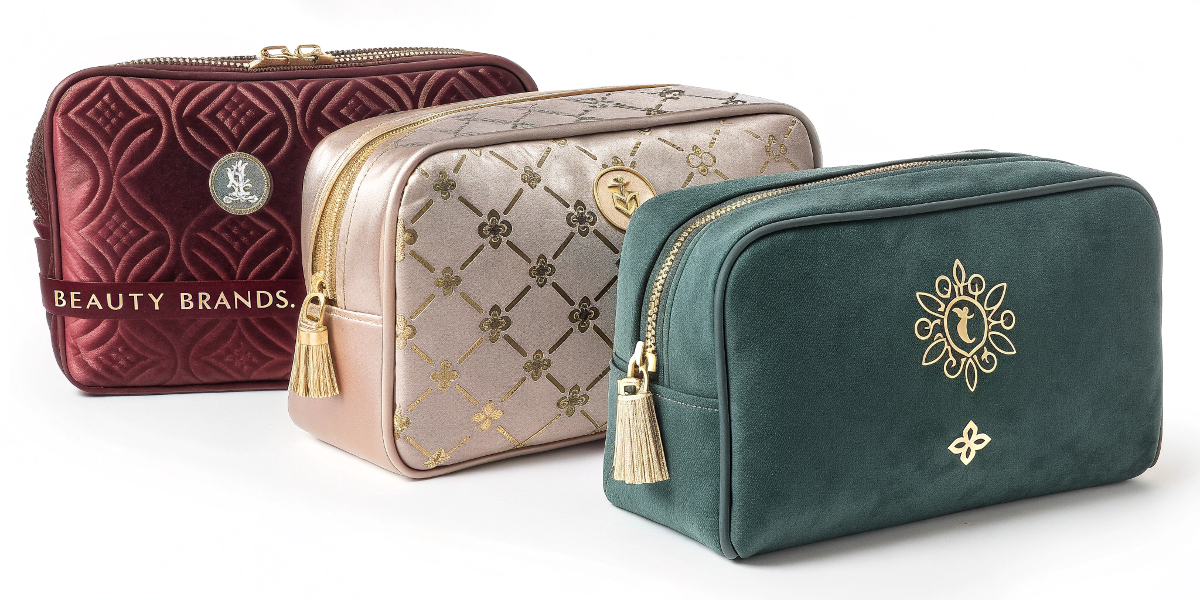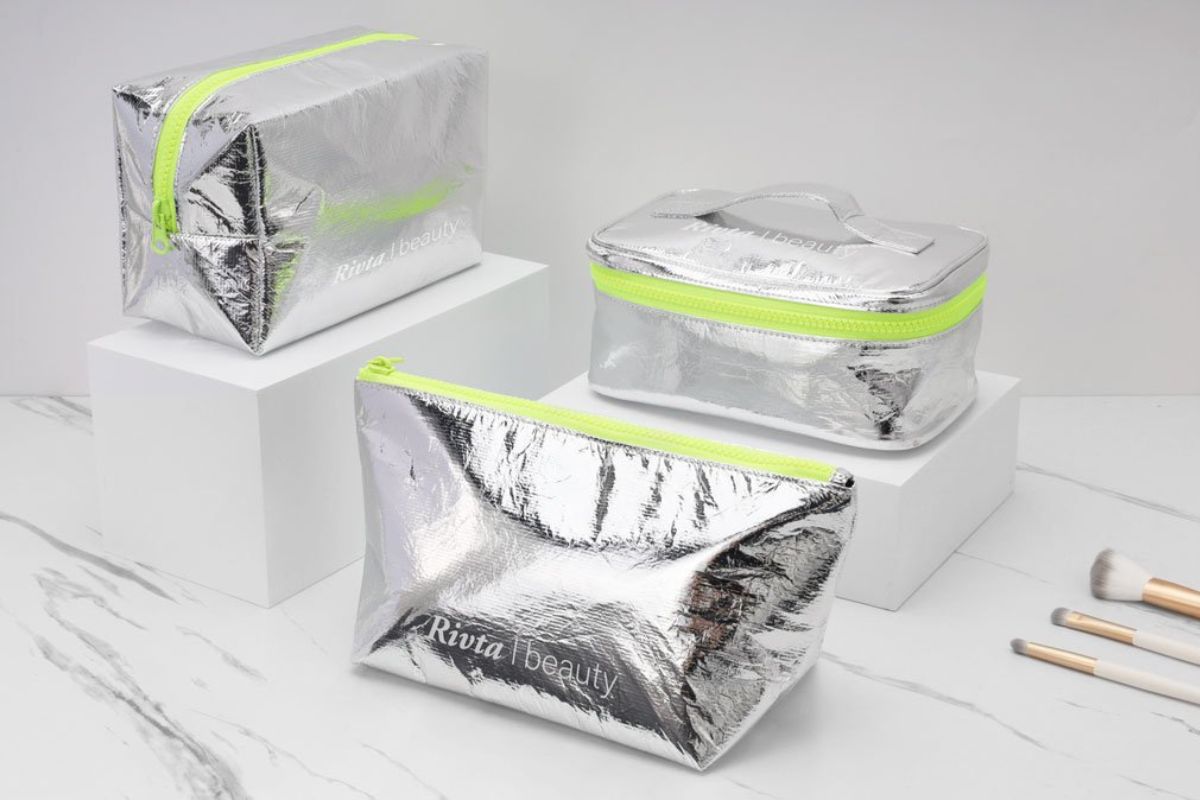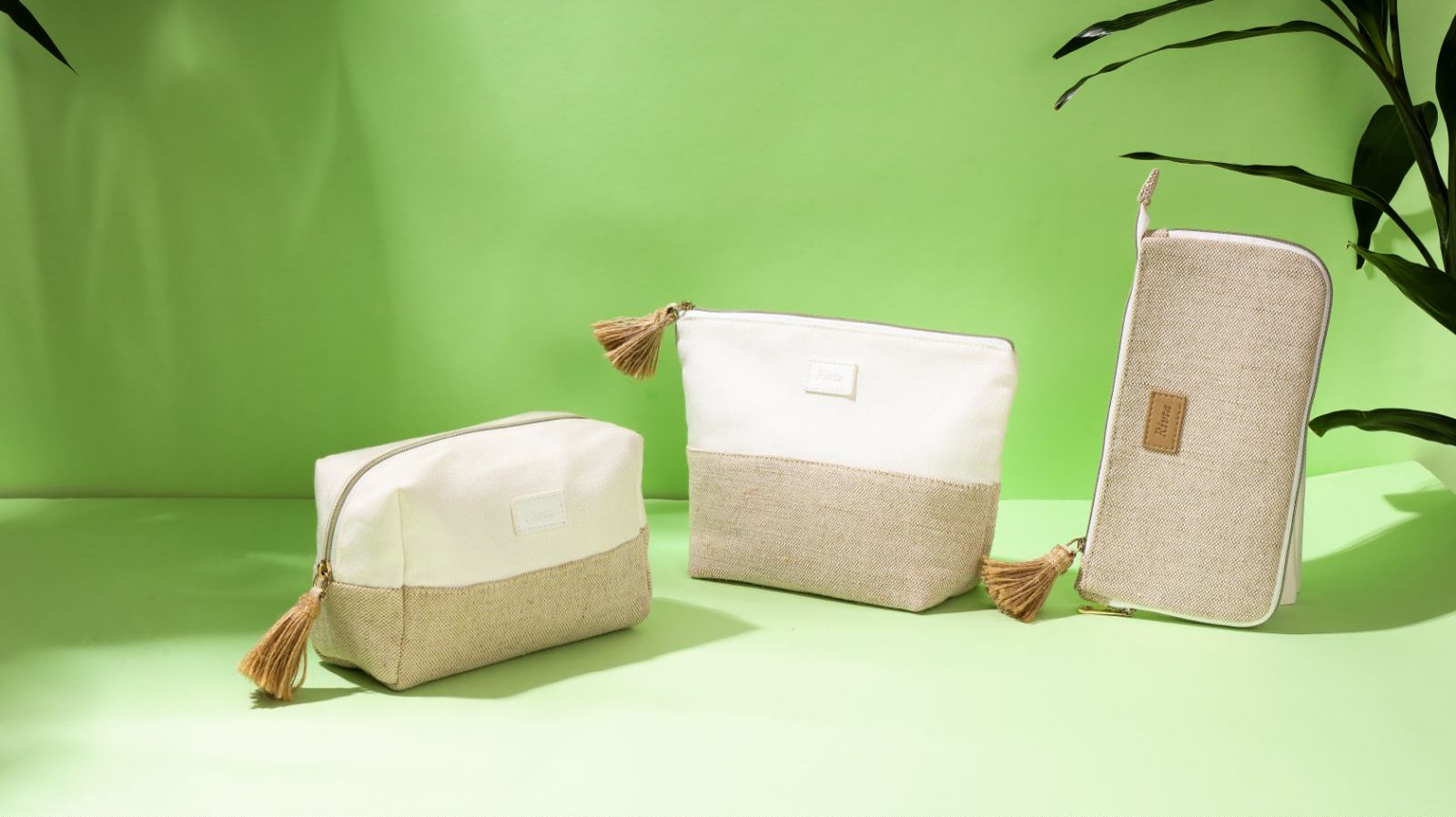How Much Do Wholesale Cosmetic Bags Actually Cost? A Manufacturer's Price Breakdown
You're trying to budget for your new cosmetic bag line, but the quotes you get seem inconsistent and confusing, making it impossible to plan your costs effectively.
The final wholesale cost from a cosmetic bag supplier is determined by four key factors: the raw materials used, the complexity of the design and labor, the type of branding and customization, and hidden variables like order quantity and packaging.
In my 15 years as a beauty product developer, one of the biggest challenges I've helped brands overcome is the mystery behind manufacturing costs. Getting a price without understanding the "why" is frustrating and leaves you feeling powerless. A price isn't just a number; it's a story about the materials chosen, the skill required, and the details that make your product unique. At Rivta, we believe in being a true partner, and that starts with transparency. A good cosmetic bag supplier should be able to explain these costs clearly. Let’s pull back the curtain and look at exactly what goes into the price of a wholesale cosmetic bag.
Beyond the Fabric: How Much Do Material Costs from Zippers to Linings Really Matter?
You're focused on the main fabric cost, like canvas or PU leather. But you worry that the smaller details might add unexpected expenses that throw your budget off track.
Material costs extend far beyond the main fabric. The type of zipper (nylon vs. metal), the quality of the lining, and even the thread contribute significantly. Small upgrades on these components can easily add 15-30% to the material cost per bag.
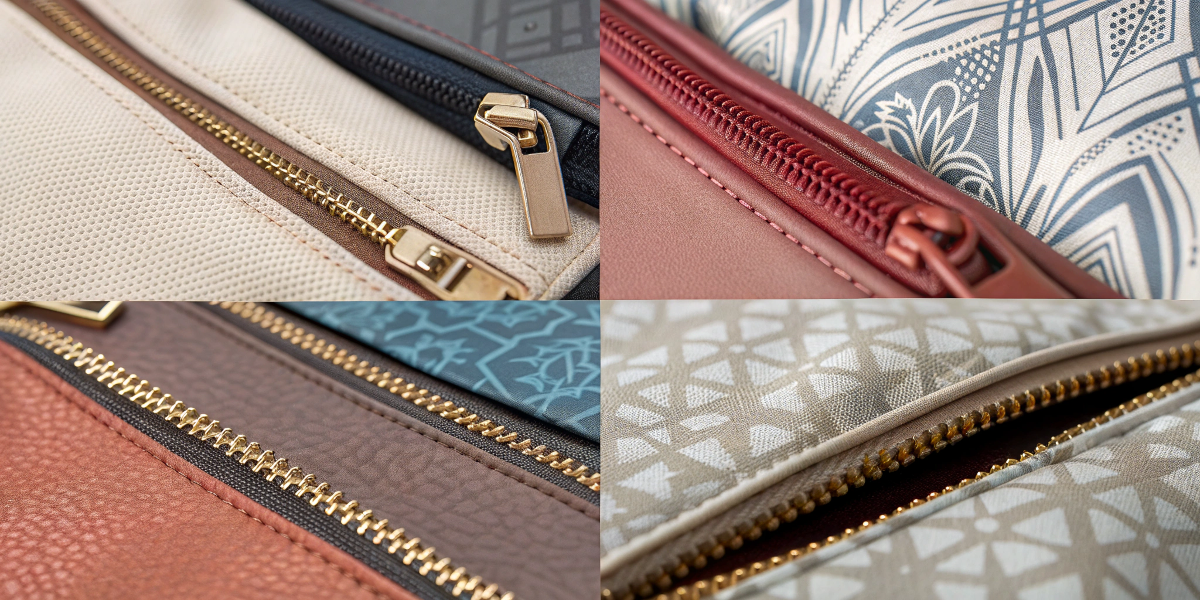
I remember working with a client who had their heart set on a specific GRS-certified recycled canvas. We had that cost locked in, but they were shocked when the sample price came back higher than they expected. The reason wasn't the canvas; it was the premium, heavy-duty metal YKK zipper and the custom-printed cotton lining they had also requested. These "small" details are what elevate a product from good to great, but they have a real cost. The key is to see the bag as a sum of its parts. Understanding the cost of each component allows you to decide where to invest for the biggest impact on your brand's perceived value.
The Anatomy of Material Costs
Every single piece of your bag has its own cost. Here’s how different choices can affect the price.
| Component | Standard Option (Lower Cost) | Premium Option (Higher Cost) |
|---|---|---|
| Main Fabric | Standard Polyester or PVC | GRS Recycled PET, Organic Cotton, High-Grade PU |
| Lining | Basic 190T Polyester | Custom Printed Cotton, Waterproof TPU |
| Zipper | Standard Nylon Coil Zipper | Metal or Vislon YKK Zipper |
| Zipper Pull | Stock Metal or Plastic Pull | Custom Molded or Branded Metal Pull |
Making a conscious choice about each element is crucial. A simple switch from a nylon zipper to a metal one can add $0.10-$0.30 per bag, which really adds up.
The Price of Complexity: How Do Structure, Pockets, and Labor Influence the Bottom Line?
You have a great design in mind, but you're not sure how its features will affect the price. A simple bag seems cheap, but will adding pockets double the cost?
Design complexity is a direct driver of labor costs. A simple flat pouch takes very little time to sew. A structured bag with internal pockets, piping, and multiple compartments requires more time and skill, significantly increasing the final price.
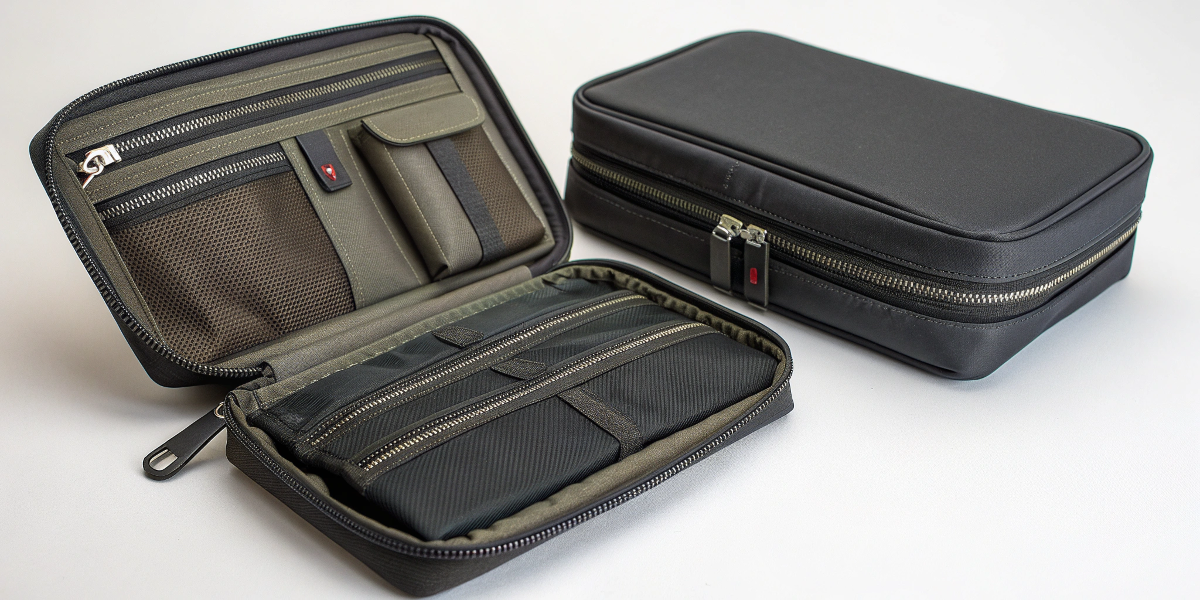
In manufacturing, time is literally money. The more time a skilled worker has to spend cutting, folding, and sewing each bag, the higher the labor cost. I once had a client who wanted to add five small elastic pockets inside a tiny pouch. While the material cost for the elastic was almost nothing, the time it took a sewer to precisely place and stitch each of those five pockets added nearly a dollar to the cost of each bag. It was a perfect example of how a seemingly small design choice can have a big impact. We ended up simplifying it to two larger pockets, which still provided function but kept the bag within budget.
From Simple to Structured
The more pieces and sewing operations, the higher the labor cost.
| Complexity Level | Example Bag | Key Features | Cost Impact |
|---|---|---|---|
| Low | Flat Pouch | 2 fabric pieces, 1 zipper, simple straight seams. | $ |
| Medium | Dome Pouch | Multiple panels, curved seams, piping on the edges. | $$ |
| High | Train Case | Reinforced walls, multiple compartments, interior dividers, handle. | $$$ |
When designing your bag, always ask your cosmetic bag supplier if a feature is essential. Every extra seam, pocket, or panel adds to the final cost.
Branding Isn't Free: How Do You Calculate the Cost of Logos, Printing, and Custom Hardware?
You need your bag to carry your brand's identity perfectly. But you're unsure how much to budget for printing a logo versus creating a custom metal zipper pull.
Branding costs vary widely based on the method. A simple one-color screen print is very affordable. A multi-color embroidery or a custom-molded metal logo plate is a premium option with higher initial setup fees and a greater impact on the unit price.
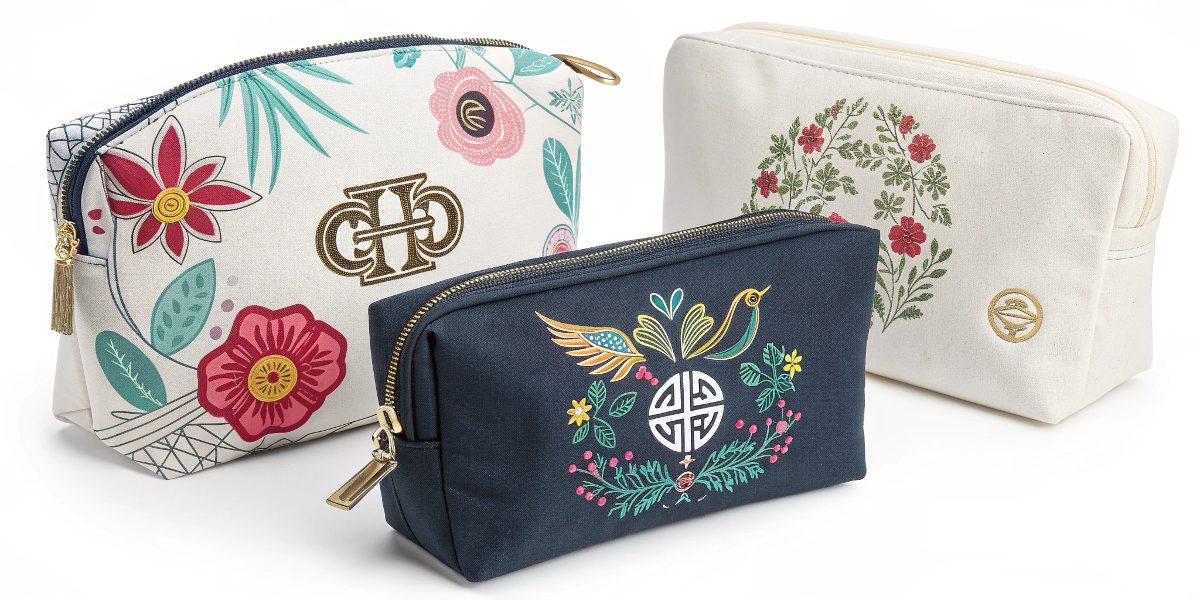
Your branding is your signature, and it's a critical investment. The method you choose should align with your brand's aesthetic and budget. For a high-end, vegan leather bag I developed, we opted for a clean, blind deboss—where the logo is pressed into the material without any color. It was subtle, sophisticated, and relatively inexpensive. For another project with a fun, youthful brand, we did a vibrant, full-color digital print. This was more costly per unit but was essential to the product's appeal. Remember that some methods, like custom hardware, also have a one-time mold fee, which can be several hundred dollars. It's important to factor that into your total startup costs.
Choosing Your Branding Method
Here's a quick look at the cost implications of popular branding techniques.
| Branding Method | Cost Level | Best For... |
|---|---|---|
| Screen Printing | Low | Simple, bold graphics with 1-3 colors. Great for canvas. |
| Debossing/Embossing | Low-Medium | Subtle, elegant logos on PU leather. |
| Digital Printing | Medium | Full-color, photographic images over the entire surface. |
| Embroidery | High | Textured, high-end logos with a premium feel. |
| Custom Hardware | High (plus mold fee) | Creating a truly unique product with branded zipper pulls or plates. |
The Hidden Variables: Why Can MOQ, Packaging, and Testing Make or Break Your Budget?
You've calculated materials, labor, and branding. But you're worried about other unexpected costs that could appear on the final invoice and ruin your profit margins.
The final price is heavily influenced by order quantity (MOQ), packaging, and testing requirements. Larger orders lower the unit price. Custom packaging adds cost. And specific chemical or safety tests for your market will add fees to your total project budget.
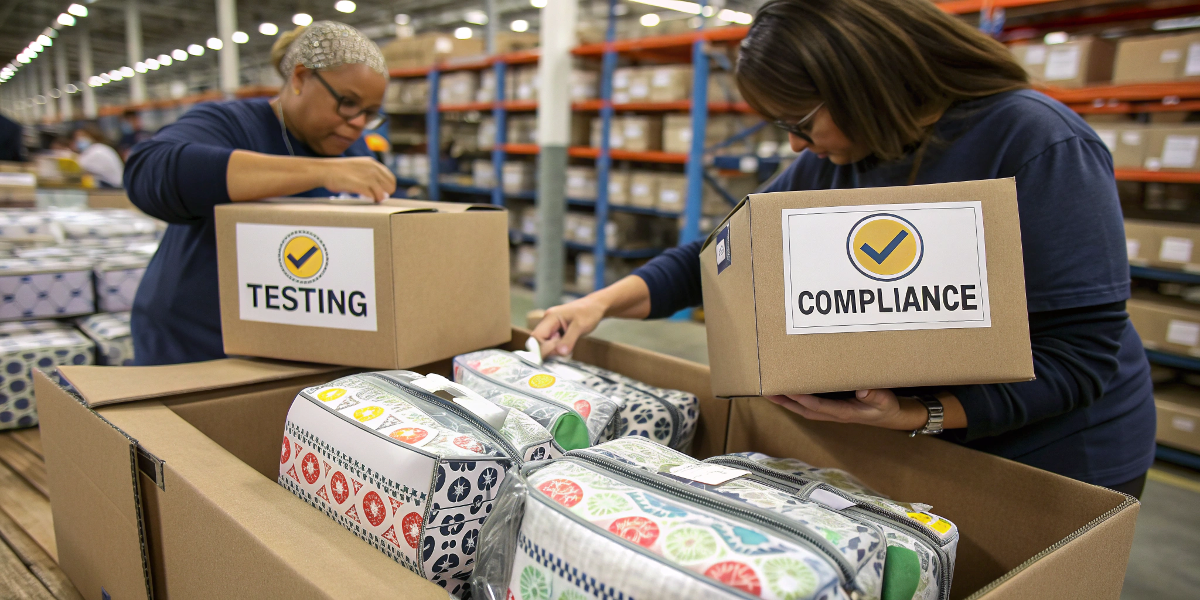
These "hidden" variables are where many new brands get into trouble when vetting cosmetic bag suppliers. One of the biggest factors is the Minimum Order Quantity, or MOQ. Ordering 10,000 bags will get you a much better price per unit than ordering just 1,000. This is because the factory can buy materials in bulk and operate more efficiently. Another area is packaging. A simple polybag for each unit is standard. But if you want a custom-printed gift box, that box itself becomes a manufactured item with its own costs. Finally, if you're selling in markets like the EU or California, you might need specific material tests to prove compliance with regulations like REACH or Prop 65. These are non-negotiable and must be factored into your budget from day one.
Budgeting for the Extras
Plan for these variables from the start.
- Order Quantity (MOQ): This is the biggest factor in your unit price. Ask for price breaks at different quantities (e.g., 1k, 3k, 5k units).
- Packaging: Decide if you need more than a basic clear polybag. Will you need custom hangtags, branded tissue paper, or a retail-ready gift box? Each adds cost.
- Compliance Testing: Ask your supplier what certifications they already have. If you need specific tests for your market, get a quote for these services upfront.
Conclusion
Understanding the true cost of a wholesale cosmetic bag gives you control. It allows you to partner with the right supplier to design a amazing product that meets your budget.
